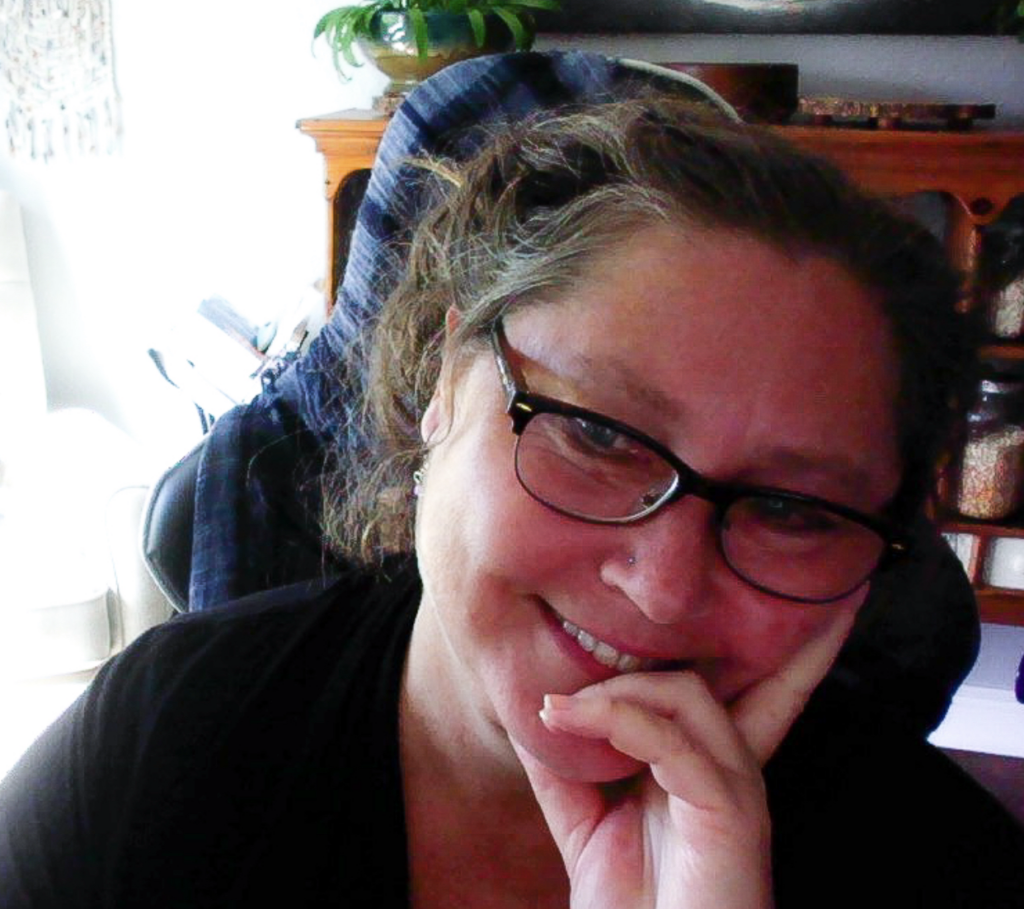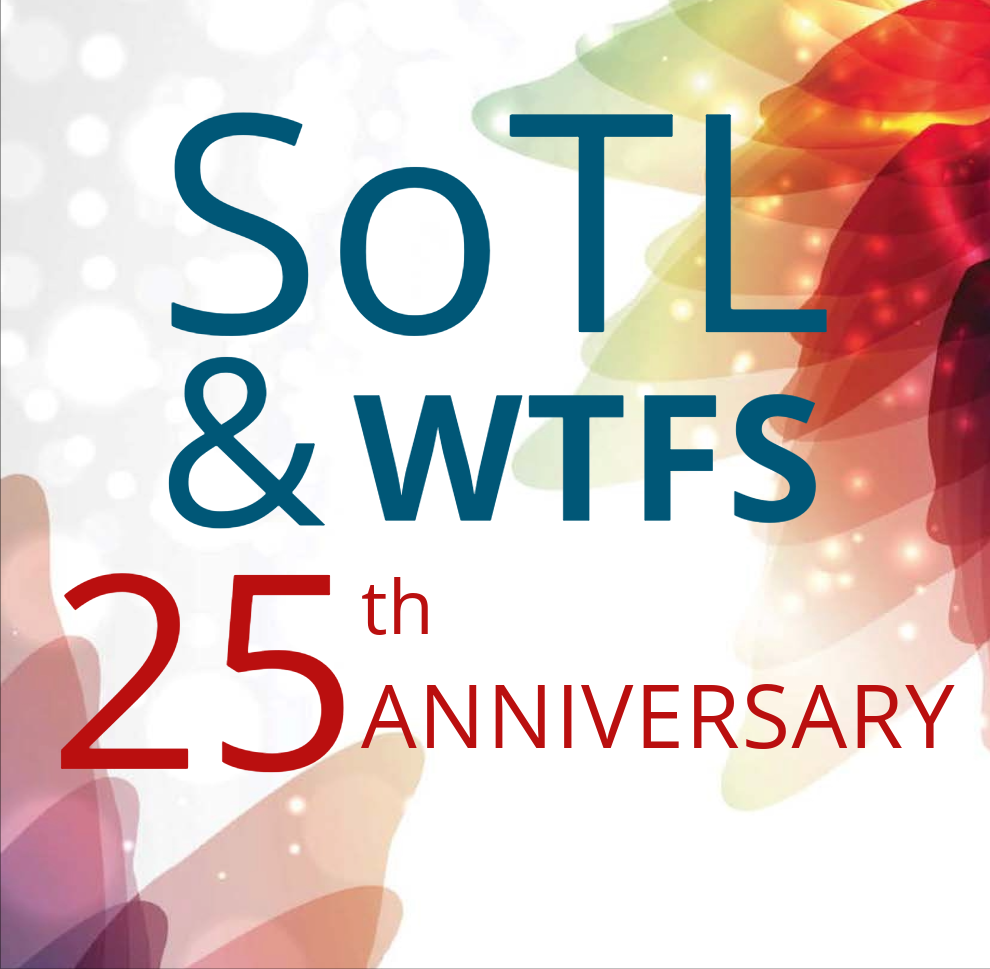Rollins College
Director, Endeavor Foundation Center for Faculty Development
Wisconsin Teaching Fellow (University of Wisconsin-Barron County), 2001-02
Wisconsin Teaching Scholar (University of Wisconsin-Barron County), 2006-07
Co-Director, Wisconsin Teaching Fellows & Scholars, 2006-11
When I was in graduate school, I was part of a year-long, university-wide program for graduate students who’d won the campus’s teaching award. We were budding literary scholars, psychologists, biologists, teachers, and more. We met regularly throughout the year to talk about teaching, sharing our different experiences in the small seminar classroom, the large lecture hall, and the lab. Nearly 30 years later, as I sit in a hotel at a SoTL conference just 200 miles away from my alma mater, two moments come back to me.
First, we always read something to seed our monthly conversations. These publications about postsecondary teaching—I don’t recall anyone using the term “SoTL” at the time—opened up for me a world in the academy I hadn’t known existed. Faculty could write and research and devote serious time to the work of teaching. As I was learning what it meant to be a scholar at a research-intensive university, I hadn’t known that this was a possible career path. Next, in the second half of the program, each of us presented something we’d done in our own classrooms to learn about teaching and learning in our disciplines. During my presentation, one of my peers (and friends) from another department called me out for relying “solely” on my close reading and analysis of students’ writing to make claims about their learning. This was my first (but not last) experience with being chastised for drawing on an expertise that wasn’t the chastiser’s, but it was also a useful introduction to the epistemological hierarchies within the multidisciplinary spaces that now interest me far more than any single discipline.
The joy, growth, community, and challenge of this program guided my job search. I would look for something different from my departmental peers who were under tremendous pressure to land jobs at R1 universities. My search brought me to the University of Wisconsin-Barron County, the northernmost campus of the now-dismantled University of Wisconsin Colleges. On that campus and, more importantly, within the larger University of Wisconsin System, I hoped to find a community committed to teaching and learning. I quickly found it when I discovered its Office of Professional and Instructional Development (OPID) and attended Faculty College at the end of my first year. From then on, I threw my hat into every OPID ring possible, a few years later leading me to the Wisconsin Teaching Fellows and Scholars Programs, first as a Fellow in 2001 and then as a Scholar in 2006.
During these years in the programs and participating in the accompanying workshops, I met friends, colleagues, and mentors who shaped the values and practices that fuel me to this day. Lisa Kornetsky (OPID Director, 1998-2008) modeled a way of being in the academy that embraced fairness, justice, and warmth. Jane Ewens (WTF Director) showed me how to ask the right questions to tease out stronger SoTL projects, and Tony Ciccone (WTS Director) formed my thinking about what he called “consequential” SoTL. Bill Cerbin (UW La Crosse) made me hungry to keep learning about the science of learning and, of course, introduced me to lesson study, my favorite type of SoTL project. And Renee Meyers and Katina Lazarides (UW System’s Leadership Site for SoTL) were the first to explicitly endorse my disciplinary approach to SoTL and supported one of my most impactful SoTL projects (Chick, Hassel, and Haynie 2009). And there are more, but these are all names many will recognize as folks who infused SoTL into OPID and the US System.
 After I’d been a Wisconsin Teaching Scholar, I wasn’t sure what was next for me. I’d been to multiple Faculty Colleges and OPID Spring Conferences and participated in other OPID-sponsored programs, but my need for this larger community had only grown. Then, Tony announced he was stepping down as WTS Director, and I saw a way to stay involved, so I applied and was fortunate enough to work alongside Jane for a few years co-directing the now-combined Wisconsin Teaching Fellows and Scholars Program. “How did [these experiences] inform and feed my career in higher education?” you ask.
After I’d been a Wisconsin Teaching Scholar, I wasn’t sure what was next for me. I’d been to multiple Faculty Colleges and OPID Spring Conferences and participated in other OPID-sponsored programs, but my need for this larger community had only grown. Then, Tony announced he was stepping down as WTS Director, and I saw a way to stay involved, so I applied and was fortunate enough to work alongside Jane for a few years co-directing the now-combined Wisconsin Teaching Fellows and Scholars Program. “How did [these experiences] inform and feed my career in higher education?” you ask.
First, I made good colleagues and friends in the various OPID-sponsored communities. Lisa, then serving as the inaugural Secretary of the International Society for the Scholarship of Teaching and Learning (ISSOTL), invited me into the society by convincing me (“Me?” I thought. “Yes, you,” she said.) to run for a Board position, beginning my years of service to what soon became my professional organization and my lifeline to SoTL scholars and scholarship from around the world. I met colleagues who became collaborators, co-authors, co-editors, and friends—too numerous and each too important to single out only a few.
Next, my advocacy for the genuine multidisciplinarity of SoTL was honed in the year-long immersive programming of the WTFS Program. These spaces sharpened my ear for disciplinary approaches and better prepared me for the emotional experiences of those who enter such a “trading zone” of different identities and epistemologies (Huber and Morreale 2002, 73). I remember a chemist proclaiming that an article written by a composition studies scholar was terrible because it didn’t follow the IMRaD format of scientific reports. I remember the creative writer and the music composer privately confessing the impossibility of sharing their work in an academic poster. I remember the psychologist claiming that the findings of a project that doesn’t demonstrate statistical significance are “merely anecdotal.” I remember natural scientists wondering how on earth they would translate what they know and do to living breathing human beings. I remember arts and humanities colleagues expressing frustration and sadness at being dismissed for their approaches. And I knew every single one of these colleagues to be good, kind, thoughtful people.
Over and over during these years, I witnessed the impact of our disciplinary training and the deeply felt identities our disciplines cultivated. We have “signature pedagogies” for our classrooms, but their underlying “habits of the mind, … the hand, and … the heart” infuse our ways of being well outside of the classroom (Shulman 2004; Shulman 2005, 59). I saw the individual impacts, like those described in the previous paragraph, and I started to see the larger impacts on SoTL as a field. If these matters of difference, power, and privilege play out unchecked, SoTL would contract to a very narrow set of questions, practices, and lessons learned. When we bring our full selves to SoTL—as we should—we ask different kinds of questions and answer them in ways that can be radically (and appropriately) different. But they’re all necessary if we’re to contribute to knowledge about teaching and learning in and across higher education.
When we embrace SoTL’s full complexity, something powerful happens. This something is what makes SoTL so necessary to higher education. In a landscape that rarely rewards deep engagement with our teaching, SoTL carves out space for this very engagement—consequential work that matters in and well beyond the classroom. The epistemological challenges I’ve described are expected tensions within multidisciplinary spaces like SoTL, but they’re also the price of a bigger payoff: the opportunity to generate knowledge that’s both practical and transformative, and that’s for both individuals and institutions. SoTL invites us to think seriously about what we do as teachers and why, and to do that thinking in community.
So how did my participation in the WTFS program and engagement with SoTL inform and feed my career? My approach to SoTL has leaned toward disciplinary expansion and inclusion, not only to invite expertise from across campus but also to strengthen the field. My career trajectory was seeded in that graduate school program, but my research agenda, the focus of my academic advocacy, and my professional ethos grew roots in my years with the WTFS Program.
I’m back in my office now, home from the SoTL conference, and finishing this essay—quite late. It’s hard to put into words what the WTFS Program did for me. I left the University of Wisconsin System in late 2011 with so many memories. At my last meeting of the Program, I was gifted a beautiful wooden box full of scraps of paper, each of which holds a farewell haiku written by that year’s Fellows and Scholars. Each captures my experience of the Program so much better than this essay. Perhaps I should’ve written a haiku.
References:
Huber, Mary Taylor, and Sherwyn P. Morreale, eds. 2002. Disciplinary Styles in the Scholarship of Teaching and Learning: Exploring Common Ground. American Association for Higher Education and The Carnegie Foundation for the Advancement of Teaching.
Shulman, Lee S. 2004. “In Search of Signature Pedagogies: Learning from Lessons of Practice.” Keynote presented at the meeting of the International Society for the Scholarship of Teaching and Learning, Bloomington, IN, 24 October 2004. Shulman, Lee S. 2005. “Signature Pedagogies in the Professions.” Daedalus 134 (Summer): 52-59.
Biography:
Nancy Chick is a SoTL scholar, scholarly teacher, and faculty developer.
After earning her PhD in American literature from the University of Georgia and eventually Full Professor from the University of Wisconsin Colleges, she left full-time faculty work to focus on the scholarship of teaching and learning (SoTL) and faculty development first at Vanderbilt University, then the University of Calgary, and now at Rollins College in Winter Park, Florida.
Nancy has authored and co-authored numerous articles and book chapters on the results of SoTL projects and on the field of SoTL. See her CV for a full list of publications. She is also co-author, with Peter Felten and Katarina Mȧrtensson, The SoTL Guide: (Re)Orienting the Scholarship of Teaching and Learning, which will be published in late summer or early fall of 2025.
Nancy also has an extensive editing background in both books and journals. She is the editor of SoTL in Action: Illuminating Critical Moments of Practice (2018) and co-editor of Becoming a SoTL Scholar (with Janice Miller-Young, 2024), Going Public Reconsidered: Engaging With the World Beyond Academe Through the Scholarship of Teaching and Learning (with Jennifer C. Friberg, 2022), Exploring Signature Pedagogies: Approaches to Teaching Disciplinary Habits of Mind, and Exploring More Signature Pedagogies: Approaches to Teaching Disciplinary Habits of Mind (with Regan A.R. Gurung and Aeron Haynie, 2009 and 2012).
From 2004 to 2012, she served on the Board of Directors of the International Society for the Scholarship of Teaching and Learning/ISSOTL, before stepping down to found and co-edit (with Gary Poole) the ISSOTL journal, Teaching & Learning Inquiry (2011-2020). Then, from 2019-22, she served on the ISSOTL Presidential team and (with Chng Huang Hoon) as ISSOTL President during 2020-21—at the height of the pandemic. She was presented with an ISSOTL Distinguished Service Award in 2017, and was ISSOTL’s inaugural Historian.
Publications and Professional Activities:
Please see my Selected SoTL CV.
